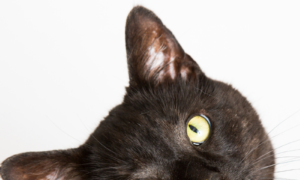By The Daily Cat experts for The Daily Cat

This question reminds me of what happened to a British friend of mine, Irene, who lives here in the states. She has a beloved cat, George, who lives in her home. Her rapport with George is great. He understands basic commands, responds quickly when she calls him, and can seemingly even read her moods, knowing exactly when to provide companionship.
This summer, Irene took in a houseguest from Denmark, Anette. Anette loves cats too, so she and George hit it off — except when Anette would speak to the cat. Although Anette speaks good English, George would simply never respond to her commands.
Anecdotal evidence suggests that cats become used to the tone, rhythm and other aspects of our individual voices, which go beyond the language itself. You and a friend may say the same word, for example, but it will sound different to the listener. Cats may be incredibly sensitive to such differences.
Biologists at the California Institute of Technology, for example, recently shared that, “in both animals and humans, vocal signals used for communication contain a wide array of different sounds that are determined by the vibrational frequencies of vocal cords.” Some of these are likely unique to specific individuals, while others (in the case of humans) are directed by the language or the person’s accent.
If you have a good rapport with your feline, your speech patterns are probably music to your cat’s ears.
Does your cat respond differently to various accents? We’d love to hear from you. Please leave a comment on your cat’s reactions to our various accents.
Photo: Corbis Images





